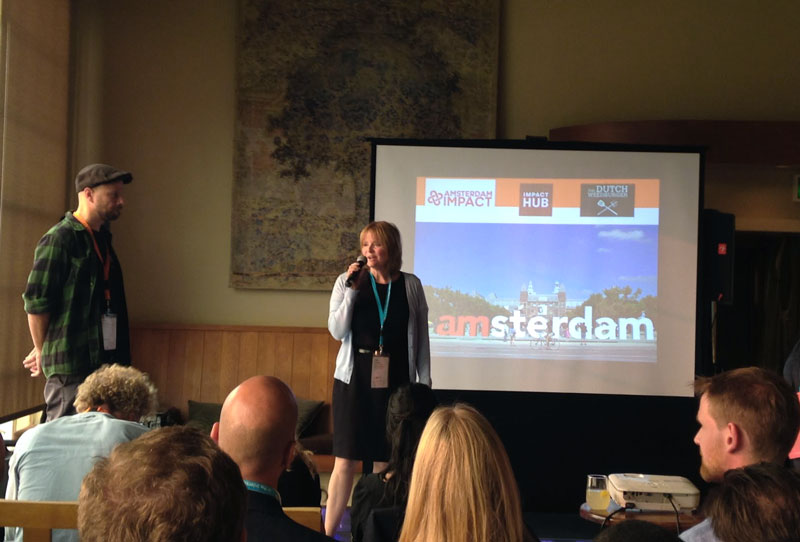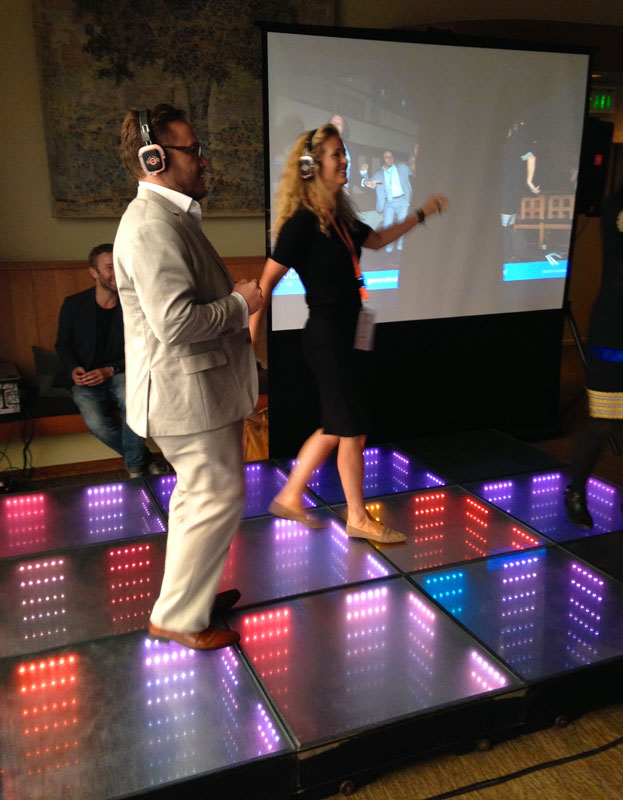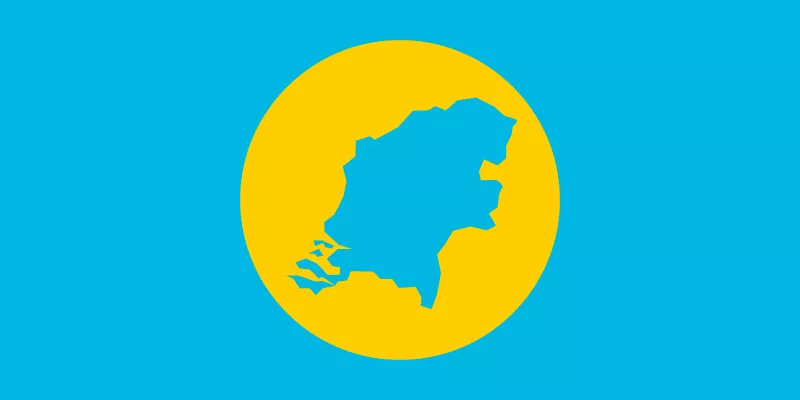A SOCAP Guest Post by Sophie van de Kerkhof
While studying the schedule of the SOCAP sessions it struck me that there was only one session focused on the social impact sector of a whole country: the Netherlands Social Impact (r)Evolution. What is happening in the Netherlands right now that is worth sharing at SOCAP more than 5,000 miles from home?
The Dutch are here at SOCAP with a twofold mission. The first is to share the story of the booming Dutch social enterprise sector and what it took to get to this point. Second, the Dutch are here to do business and build valuable connections for a group of social entrepreneurs. SOCAP was chosen as the ideal venue for the first Dutch trade mission for social entrepreneurs.
The Netherlands Social Impact (r)Evolution
The session on Wednesday, October 11th was led by Leila Janah – an entrepreneur who was able to kickstart her social enterprise Samasource with the help of Dutch capital. The other panelists were representatives of the Dutch social enterprise sector including the founder of Social Enterprise NL (Willemijn Verloop), the founder of Enviu (Stef van Dongen) and the founder of Social Impact Ventures NL (Warner Philips).
The discussion focused on the how the Dutch social enterprise sector grew exponentially in the last five years. Willemijn Verloop noted that five years ago the social impact sector was basically nonexistent in the Netherlands, but the sector then managed to grow by 70 percent between 2011 and 2016 and in this same period collective business revenues grew with 75 percent to 3.5 billion euro. It is probably no coincidence that the start of this growth period coincided with the start of Social Enterprise NL, an organization that offers social entrepreneurs a platform of like minded people, business support, and lobbying for better policies on a national level.
Local Bottom up Approach
It is the social entrepreneurs that really built the social enterprise sector from bottom up in the Netherlands. Although most of them were initially focused on solving market failures abroad, entrepreneurs recognized the challenges in the Netherlands (with a changing political climate and a more individualistic society) and started innovative social businesses locally as well. The speakers kept emphasizing how collaboration among the entrepreneurs was key to building a strong base that inspired others along the way. From the participating entrepreneurs we heard that building connections is relatively easy in the Netherlands due to the small size of the country.
The next step of collaboration with universities, the financial sector, and governments turned out to be very valuable. A representative of the city of Amsterdam, Ellen Oetelmans, agrees and says that governments often work on a lot of the same social issues and cities should support collaborations with social entrepreneurs. The speakers made an exciting announcement that the national government (finally) plans to start supporting the social enterprise sector at the government level.

Ellen Oetelmans and Mark Kulsdom pitching their projects at the Dutch party
The Dutch Advantage
A small country makes it easy to build connections and another advantage of this small country is their historical outward focus to the rest of the world. There are many large Dutch corporations with international networks like Booking.com and Unilver. The founder of GoodUp, Bart Lacroix, wants to engage the employees of these corporations “to do good” and work together to improve the business. By working with these corporations he is able to scale initiatives globally.
The practical and pragmatic mentality of the Dutch has also been an important factor to get to this point. Sjaak Vink, founder of TheSocialMEDwork, thinks that is why the Netherlands performs better than other countries. The Dutch were able to translate ideas and visions into concrete actions and they kept their focus on measurable social impact. Sjaak’s organization will take this to a next level by adjusting his employees’ salaries based on the level of their social impacts.
First Dutch Trade Mission for Social Entrepreneurs

Attendees of the Dutch party are generating energy with their dance moves
The Dutch social entrepreneurs pitched their businesses at the ‘Dutch party’ located at the Greens restaurant following the panel session. Some entrepreneurs already have international peers and funders and others are still figuring out if they want to scale their business internationally. This mission will help them build connections and explore their international potential with industry experts.
In the last five years the Netherlands has risen as an energizing force for the social enterprise sector. This enthusiasm and energy was clearly on display watching participants enjoy the energy generating dance floor at the Dutch after-party. Michel Smit is the founder of Energy Floors and hopes to use this technology so the public can generate electricity by showing off their dance moves or simply walking around the city.
For more information, read Lessons From The Dutch Social Impact Ecosystem Boom, a SOCAP Guest Post by Willemijn Verloop, Co-founder of Social Enterprise NL and Founding Partner of Social Impact Ventures.
 Sophie van de Kerkhof recently moved from Amsterdam to San Francisco. She previously worked at the World Wildlife Fund on marine conservation issues and she contributed to the green energy transition in the Netherlands by working as a solar consultant at two solar companies.
Sophie van de Kerkhof recently moved from Amsterdam to San Francisco. She previously worked at the World Wildlife Fund on marine conservation issues and she contributed to the green energy transition in the Netherlands by working as a solar consultant at two solar companies.






